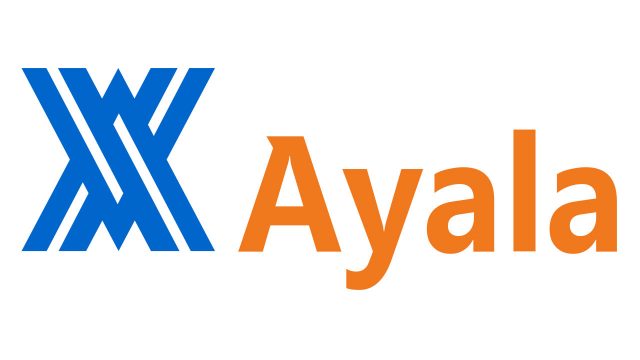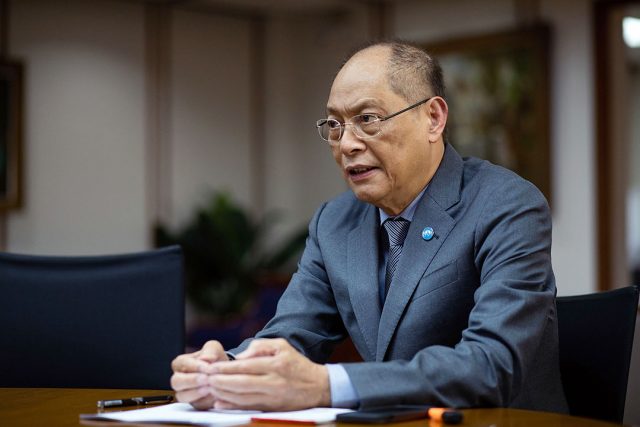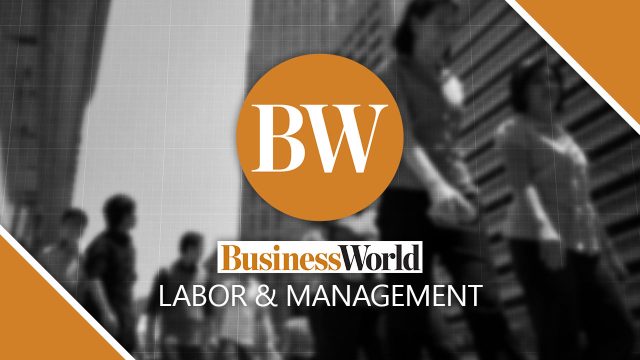I’m a newly-promoted manager tasked to supervise a group of workers of various backgrounds, experience, seniority, and educational attainment. What do I need to be successful? — Gray Zone.
Start by being kind to people and they will reciprocate. Kindness begets kindness. If not, recalibrate in due time.
You can’t go wrong with kindness. People are basically good. Therefore, treat everyone with kindness unless they show signs they don’t deserve it. This means you can’t assume that every worker is lazy and uncooperative. You need to take the time to listen carefully.
Kindness is a good rule of thumb for managing every employee. It helps you prevent a lot of misunderstandings and gets the best out of people. Of course, there are exceptions. Some people intend to get away with anything they can. If that happens, adjust your style without delay.
BAD EXPRESSIONS
More important, you must be conscious of your own style and be watchful of words that come out of your mouth. This way you get to understand that people react negatively to things that you may have uttered without thinking through the implications. On the top of my list are some depraved expressions you should avoid:
One, “It is a management prerogative.” Many managers in their attempt to short-circuit a “debate” are tempted to hide behind management prerogative. Unless you’re in labor court, don’t use this argument to shut out people. Instead, be patient and explain the rationale for a certain policy.
Two, “That’s not a management problem.” Sure, there are many things that can’t be your concern. But why can’t management do something or at least exert a little effort to make the lives of the workers better? If workers are having difficulty commuting and come in late, would it be possible to assign them to a location nearer their home?
Three, “Come up to my level first before questioning it.” This is too harsh. If you can’t explain it clearly to the workers, then don’t resort to insult. It’s unprofessional, to say the least. It’s also important to understand that when you resort to insult and being disrespectful, it only shows the workers how your position has become shaky and weak.
Four, “I don’t have time to teach you everything.” It’s like saying you’re not interested in their career growth. It will come across as a lack of generosity in sharing what you know. How will you get the best from your workers if you don’t have time to coach them?
Five, “We’ve always done it this way.” This is a killer phrase that turns people off. Who would want to do a good job if you’re always defending the status quo? What will happen if you ask them for their ideas? Nothing; you’ll be surrounded by people who have no energy to talk.
Six, “It’s confidential.” If it’s confidential, then the drama ends. But first, you must be able to convey the reason behind why information is confidential. Don’t be remiss in saying that certain information is limited to certain persons, no matter how painful it may sound.
Seven, “Don’t bring your personal problems here.” Why not? If people seek your advice about their family problems, don’t hesitate to help. Make an effort to listen to their stories and find out how you can alleviate the situation without resorting to money, if money is requested. You ca n allow them to take time off, if that helps.
Last, “That person is lazy.” Even if it’s true, there is no point to spreading such malicious claims. You don’t know how it might ruin the work relationship if the person in question finds out. The correct approach is to talk directly to the person and not to third parties. Just as important, how would colleagues feel if they’re aware that you talk maliciously behind someone’s back?
DIPLOMACY
Your basic job as a manager is to help everyone reach their full potential so they can do an excellent job, which benefits you, the department, and the whole organization. If everyone sees you as the best boss, it will be easier to work with them regardless of their current situation.
It’s best to be diplomatic with your words and your body language. Many people are sensitive. It’s best to be patient and help people develop. If they lack the necessary knowledge, attitude, skills, and habits, much more patience is called for. Understand people by recalling how you started as a newbie. Talk to people as if they’re family.
If they don’t reciprocate, take proper action, like forcing them to undergo a performance improvement plan, among others. If not, talk to them and find out how you can help them resolve their difficulties.
Have a consulting chat with Rey Elbo on Facebook, LinkedIn, or Twitter or you can send anonymous questions to elbonomics@gmail.com or via https://reyelbo.consulting










